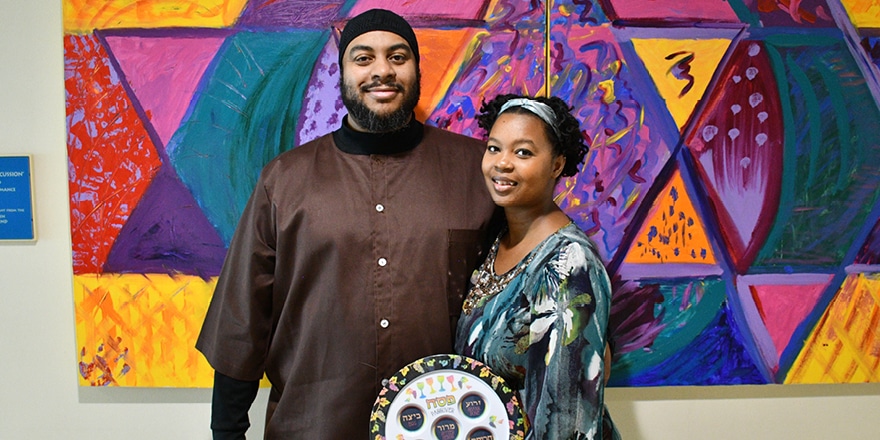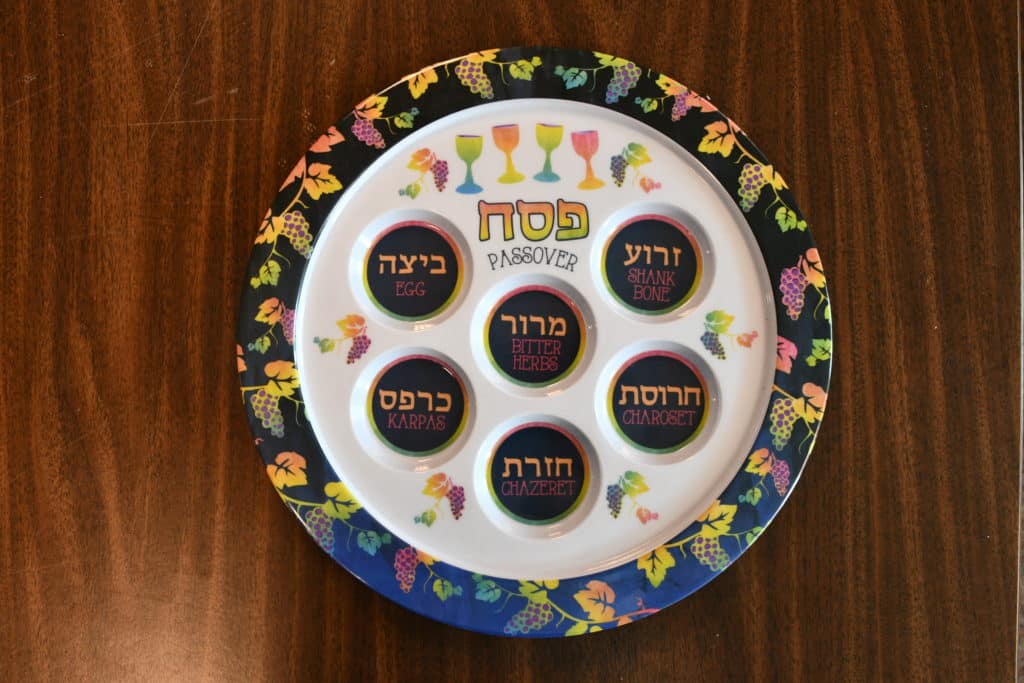Passover with Lovelace and Michael

The Passover holiday is always an event, but if you’re spending it with ECE Ones teacher Lovelace, her partner Michael and their family, it’s especially so. Their preparations start about two weeks before the holiday itself, to ensure they’re able to use up or give away any leavened grain products, known as chametz, before Passover begins, and then deep clean the kitchen to get rid of any remaining crumbs. Lovelace then makes her own matzah, or unleavened bread, mimicking the actions of the Jews in the Exodus story as they fled before their dough had time to rise. “We are very literal when it comes to what the Torah says,” Lovelace said. “We go through everything that’s said in Torah and read it all together and do that. That’s how we ground ourselves, how we celebrate.”
That attention to detail carries through to the night of the Passover seder, or festive meal, as well. A verse in Exodus says, “This is how you shall eat it: your loins girded, your sandals on your feet, and your staff in your hand; and you shall eat it hurriedly,” so that’s exactly what the family does, even venturing out to a wooded area near their home to grab sticks to use as staffs. The verse “And the blood on the houses where you are staying shall be a sign for you: when I see the blood I will pass over you, so that no plague will destroy you when I strike the land of Egypt,” gets its own interpretation too: The family marks their door with strawberries to represent the blood (they’re vegetarian, so don’t use actual lamb’s blood). “We see the traditions and the things our ancestors did and we say, ‘We want to bring those things back to life, to get as close to our ancestors as possible,'” Michael said.
(Side note: While their vegetarianism makes Passover’s food restrictions difficult as they have even fewer options than usual, Lovelace and Michael do enjoy using spaghetti squash as “noodles” and sharing in some of Mrs. Grimm’s “matzah lasagna”).

Neither Lovelace nor Michael grew up Jewish, so celebrating Passover helps them connect to both G-d and other Jews. “Throughout the Torah, the Creator gives us instructions, which solidify the relationship between us. If you come from Spain, if you come from Russia or Poland, if you come from Africa, or if you were born in the U.S., there are things like the seder plate and the prayers we do that make us all one people,” Michael said. Lovelace appreciates the time to gather with family and friends: “There are a few people who we might not see throughout the year, but I know during Passover I’m going to see them – be together, sing, eat, drink, all those things.”